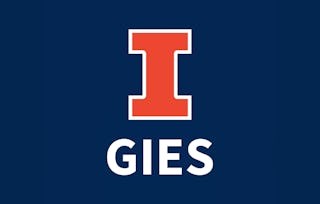This comprehensive course delves into operations management and process improvement principles and techniques, providing you with the knowledge and skills necessary to identify and eliminate inefficiencies in your organization. You will gain a solid foundation in operations management by analyzing key concepts such as cost-quality trade-offs, the efficiency frontier, and system inhibitors.

Introduction to Operations Management

Introduction to Operations Management
This course is part of Business Foundations Specialization

Instructor: Christian Terwiesch
Access provided by FutureX
165,233 already enrolled
2,855 reviews
What you'll learn
You will learn to analyze processes, optimize flow, and manage variability, driving improvements and achieving excellence in operations management.
Skills you'll gain
- Quality Management
- Capacity Planning
- Operational Efficiency
- Process Improvement
- Process Flow Diagrams
- Workflow Management
- Inventory Management System
- Continuous Improvement Process
- Process Analysis
- Lean Methodologies
- Operations Management
- Supply Chain Management
- Statistical Process Controls
- Process Management
- Root Cause Analysis
- Skills section collapsed. Showing 8 of 15 skills.
Details to know

Add to your LinkedIn profile
3 quizzes, 15 assignments
See how employees at top companies are mastering in-demand skills

Build your subject-matter expertise
- Learn new concepts from industry experts
- Gain a foundational understanding of a subject or tool
- Develop job-relevant skills with hands-on projects
- Earn a shareable career certificate

There are 4 modules in this course
At its core, operations management is about finding and then reducing inefficiencies. We will start by examining key concepts such as cost-quality trade-off, the efficiency frontier, and three system inhibitors. We will also explore process analysis, enabling you to identify and analyze the steps involved in a process and make changes to improve its outcomes. By the end of this module, you will have opportunities to practice these concepts by creating process flow diagrams and calculating the resource with the lowest capacity. Additionally, you'll be able to practice calculating capacity, flow rate, and utilization. You will be able to transfer these skills to initiate process analysis within your organization.
What's included
6 videos4 readings4 assignments
In operations management, flow focuses on the movement of materials, products, and information through the various stages of a production or service process. Lean operations focus on identifying sources of waste both in terms of resources and processes. Optimizing flow can improve productivity, reduce costs, and enhance customer satisfaction. By learning to carefully observe how work is done, we can become better at identifying waste. The goal is to create efficient and effective processes that maximize output while minimizing waste.
What's included
10 videos4 readings2 quizzes5 assignments
Little's Law, a foundational concept in operations management, helps quantify and evaluate the efficiency and effectiveness of a system by providing key performance indicators. By understanding the relationship between inventory, arrival rate, and cycle time, managers can make informed decisions regarding capacity planning. Little’s Law also serves as a diagnostic tool for process improvement initiatives and is particularly valuable in supply chain management, where it enables companies to optimize inventory levels, reduce lead times, and enhance coordination among various stages of the supply chain. It helps strike a balance between supply and demand, improving overall responsiveness and customer service.
What's included
4 videos2 readings4 assignments
Variability can introduce defects and hinder the pursuit of excellence. By recognizing and managing variability, organizations can lay the foundation for consistent and exceptional quality standards. This module introduces frameworks that provide systematic ways to analyze variability. We’ll look at how statistical analysis and problem-solving methodologies can enhance quality. We’ll also explore the power of real-time information and how it fosters continuous improvement. We’ll examine strategies for finding the root cause of an issue and explore how we might develop targeted solutions as we unravel complex problems.
What's included
7 videos2 readings1 quiz2 assignments
Earn a career certificate
Add this credential to your LinkedIn profile, resume, or CV. Share it on social media and in your performance review.
Instructor

Offered by
Why people choose Coursera for their career

Felipe M.

Jennifer J.

Larry W.

Chaitanya A.
Learner reviews
- 5 stars
68.29%
- 4 stars
18.78%
- 3 stars
6.50%
- 2 stars
2.69%
- 1 star
3.70%
Showing 3 of 2855
Reviewed on Mar 6, 2016
very objective and hands on structure. Excellent for working executive as well, gives a hands on refresher with the help of best and latest on the subject. very concise and focused.
Reviewed on Aug 24, 2020
Great Instruction by Prof Christian - very lucid and with real world examples. Learning a business skill is mostly learning observation.. Now I know what to observe when looking for productivity!
Reviewed on Sep 12, 2024
Concepts very well explained by the professor. The explanations were in simple and easy to understand language, with real life examples. That made the course very interesting. Thanks.
Explore more from Business

University of Illinois Urbana-Champaign

Simplilearn

IESE Business School


